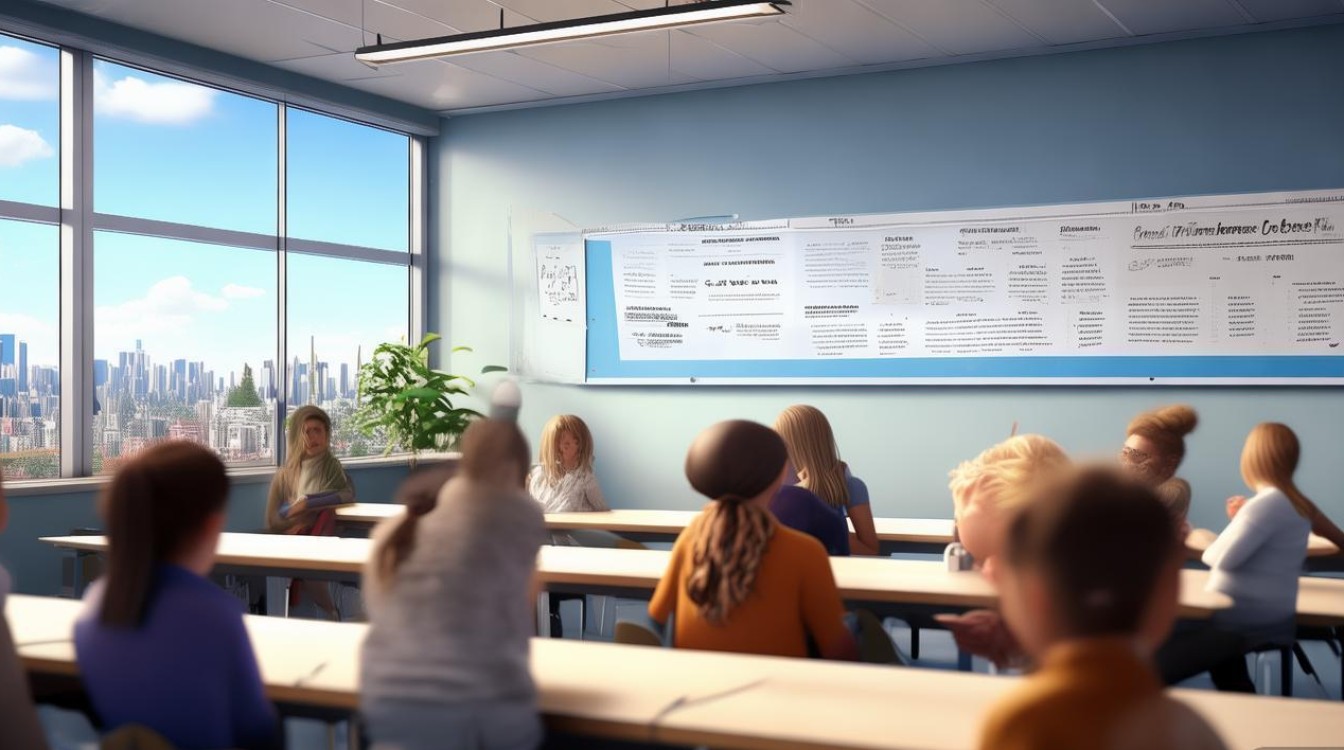雅思口语中关于 "Climate" 这个话题非常常见,因为它涵盖了环境、科技、政府责任和个人行动等多个层面,非常适合考察考生的词汇量、语法深度和思辨能力。

下面我将为你提供一个全面的备考指南,包括核心词汇、高频问题、高分思路和范例回答。
Part 1: 核心词汇与短语
掌握这些词汇是回答问题的基础,能让你的表达更地道、更专业。
名词
- Climate Change: 气候变化 (最常用)
- Global Warming: 全球变暖 (常与 Climate Change 交替使用)
- Greenhouse Gases: 温室气体 (e.g., carbon dioxide, methane)
- Carbon Footprint: 碳足迹
- Renewable Energy: 可再生能源 (e.g., solar, wind, hydro power)
- Sustainability: 可持续性
- Extreme Weather Events: 极端天气事件 (e.g., floods, droughts, heatwaves, hurricanes)
- Ecosystem: 生态系统
- Biodiversity: 生物多样性
- Environmental Protection: 环境保护
- Carbon Neutrality / Net-Zero: 碳中和 / 净零排放
动词
- To emit / release (gases): 排放 (气体)
- To mitigate / reduce (the effects): 减轻/缓解 (影响)
- To adapt to (climate change): 适应 (气候变化)
- To raise awareness: 提高意识
- To recycle / upcycle: 回收 / 升级改造
- To conserve energy: 节约能源
- To invest in (renewable energy): 投资 (可再生能源)
- To suffer from (droughts/floods): 遭受 (干旱/洪水)
形容词
- Sustainable: 可持续的
- Eco-friendly / Environmentally-friendly: 环保的
- Carbon-intensive: 高碳的
- Devastating / Catastrophic: 毁灭性的
- Urgent / Pressing: 紧迫的
- Drastic / Radical: 激进的,根本性的
- Ambitious: 有野心的
常用短语
- Take measures/steps to do sth.:采取措施做某事
- Make a difference: 产生积极影响,带来改变
- Do one's bit: 尽自己的一份力
- A double-edged sword: 一把双刃剑
- A vicious cycle: 恶性循环
- In the long run: 从长远来看
Part 2: 高频问题与高分思路
问题类型 1: 个人经历与感受
Q1: Is the weather in your country changing?
- 思路:
- 肯定回答: Yes, definitely.
- 具体描述变化: 用具体例子说明,比如夏天更热、冬天更暖和、极端天气(暴雨、干旱)更频繁。
- 影响: 这些变化如何影响人们的日常生活,比如农业、健康、户外活动。
- 范例回答:
"Yes, absolutely. I've definitely noticed a significant shift in our weather patterns over the past decade. For instance, summers are becoming scorching hot, with temperatures often soaring above 40 degrees Celsius, which was pretty rare before. We've also been experiencing more intense rainfall, leading to occasional flooding in some urban areas. These changes have a real impact; for example, farmers are struggling with unpredictable weather, and we're all more cautious about heatstroke during the summer."
Q2: What can we do to help protect the environment?
- 思路:
- 分层回答: 从个人、社区、政府/企业三个层面展开,显示逻辑性。
- 个人层面: 举例说明个人行动,如垃圾分类、节约水电、绿色出行、减少一次性用品。
- 政府/企业层面: 提及更宏观的措施,如投资可再生能源、制定环保法规、推广绿色技术。
- 范例回答:
"Well, I believe tackling this issue requires a collective effort from every level of society. On a personal level, we can make a tangible difference by adopting eco-friendly habits, like reducing our consumption of single-use plastics, sorting our garbage for recycling, and choosing to walk, cycle, or use public transport instead of driving. At the community and government level, it's crucial to invest more in renewable energy sources such as solar and wind power. Additionally, stricter regulations should be imposed on industries to limit their carbon emissions. Ultimately, it's about raising awareness and encouraging everyone to do their bit."
问题类型 2: 社会问题与解决方案
Q1: What are the main causes of climate change?
- 思路:
- 直接回答: 点出主要原因。
- 详细阐述: 分别解释人类活动和自然因素。
- 强调主要矛盾: 明确指出人类活动是主因。
- 范例回答:
"From my perspective, the primary driver of contemporary climate change is human activity. The most significant contributor is the burning of fossil fuels like coal, oil, and gas for energy, transportation, and industrial production, which releases vast amounts of greenhouse gases, especially carbon dioxide, into the atmosphere. Another major factor is deforestation, as trees that absorb CO2 are being cut down on a massive scale. While natural phenomena like volcanic eruptions play a role, scientists agree that the current rapid pace of climate change is overwhelmingly caused by human actions."
Q2: What are the effects of climate change on people's lives?
- 思路:
- 概括性回答: 说明影响是多方面的。
- 分点阐述: 从不同领域展开,如健康、经济、社会安全。
- 举例说明: 用生动的例子让回答更具体。
- 范例回答:
"The effects of climate change are far-reaching and deeply impact our lives. Firstly, it poses a direct threat to public health. More frequent and intense heatwaves can lead to heat-related illnesses and even deaths. Secondly, it has severe economic repercussions. For example, agriculture is heavily affected by droughts and floods, which can lead to food shortages and price hikes. Finally, it can create social instability. Rising sea levels could displace millions of people living in coastal areas, leading to what's known as 'climate refugees' and putting a strain on resources in host communities."
问题类型 3: 未来预测与个人观点
Q1: Do you think things will get better or worse in the future?
- 思路:
- 辩证回答: 避免绝对的“好”或“坏”,展现思辨能力。
- 悲观的一面: 如果不采取行动,情况可能会恶化(描述严重后果)。
- 乐观的一面: 但如果我们现在采取积极、有力的措施,情况是可以改善的(提出希望和解决方案)。
- 总结观点: 给出自己的最终判断,通常是谨慎乐观。
- 范例回答:
"That's a crucial question. Honestly, the outlook is a bit of a double-edged sword. On the one hand, if we continue on our current path, ignoring the warning signs, I'm deeply concerned that things will get much worse. We could face irreversible damage to our ecosystems and more catastrophic weather events. On the other hand, I'm hopeful that with a global, concerted effort, we can turn the tide. The growing awareness, especially among younger generations, and the rapid advancement in green technologies give me reason for optimism. So, while the situation is urgent, I believe the future is not yet set in stone. It really depends on the actions we take today."
Part 3: 深入讨论与技巧
在 Part 3,考官会就 Part 2 的话题进行更深入、更抽象的探讨。
假设 Part 2 话题是 "Describe a place you think is beautiful." 你提到了一个自然保护区。
考官 Part 3 可能会问:
- "Do you think governments should spend more money on protecting natural environments?"
- "How can we balance economic development and environmental protection?"
- "What role do you think education plays in solving environmental problems?"
回答技巧:
- 抽象化: 将具体问题上升到理论和原则层面。
- 例如: 回答政府是否应该花钱保护环境时,不要只说“是”,而是讨论“政府的首要责任是什么?是短期经济利益还是长期可持续发展?”
- 提出解决方案: 不仅要分析问题,还要给出有建设性的意见。
- 例如: 平衡发展与环保,可以提出“发展绿色经济”、“循环经济”等概念。
- 使用连接词: 使用
However,Nevertheless, `











